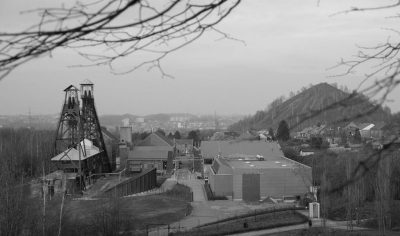Greek Communities: Radio documentaries on Greek immigration in the last century
Episode 2 of “The Coal Miners of Belgium” season focuses on the accident in the town of Marcinelle, where one of Belgium’s oldest and most coal-fired mines had been operating since the early 18th century.
All Greek immigrants who came to Belgium to work as miners from the early 1950s and later headed for the coal mines of the wider area (where the vast Borinage deposit was located) and the Liège region (where the huge Limburg deposit was located). An inhumanly hard job, steeped in coal dust, among drills and shovels, on rails and wagons, in galleries and tunnels that reached down to 500 and sometimes down to 1200 meters underground.
People who chose the tartars of a foreign land rather than the unbearable poverty of their homeland, with a lamp in the place of the sun and crammed up one next to the other, some were on their way to the coal vein and the others on their way to the surface. Greeks together with Greeks, but also with Italians, Poles, and others speaking a different language but bound by the same fate.
The calendar was on August 8th, 1956, at a quarter to eight in the morning. In the tunnels of the Bois du Cazier coal mine, 274 men had gone down to work. While mining was underway (down to a depth of 1035 meters), about half an hour after the start of the shift (08:15), one of the wagons bearing up the pieces of coal swerved and hit the high-voltage power lines of the lifting mechanism. This resulted in cables being cut and caused severe mechanical failure-jamming, which interrupted the operation of the elevator so it could not be used to escape.
The collision of the wagon with the power lines caused a fire and the fire damaged power and communication facilities. At the same time, the installation of the lubrication pipes of the mechanisms caught fire, resulting in the fumes from the burnt oil and the smog of smoke from the fire-spewing out suffocating gases in the tunnel.
At 08:25 the alarm was raised and the rescue teams were called in. In the extinguishing and rescue operation that followed, many rescuers of Italian origin immediately rushed down, in order to communicate with the entrapped, because it was known that mainly Italian migrant workers worked in the tunnel that had been cut off. However, among the dead were also 6 Greek miners.
___
(Research-documentation-presentation: Thomas Sideris, journalist @ERT/Human Geography PhD)
